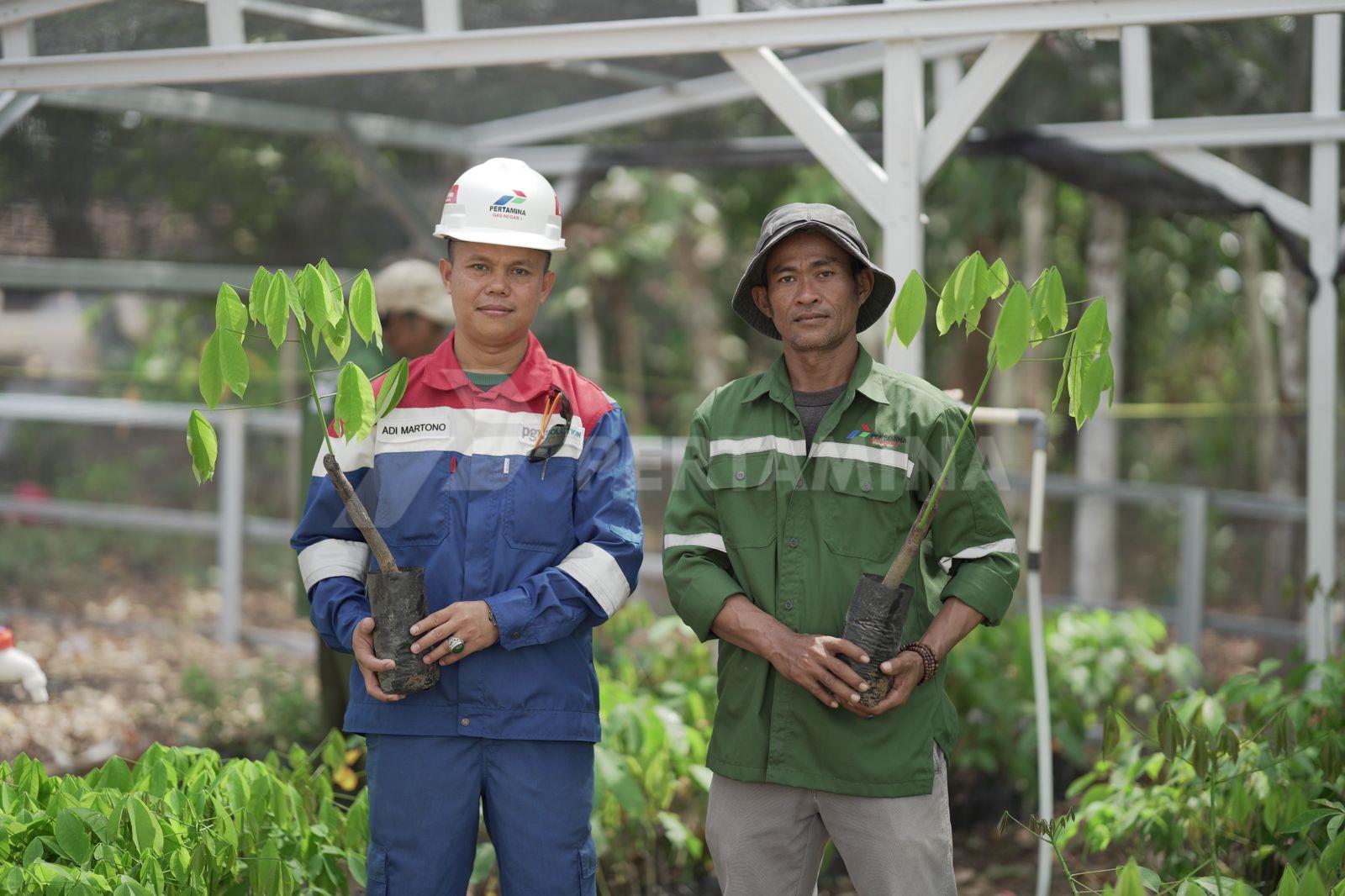
Supporting Rubber Farmers with Replanting, PGN Pagardewa Station Introduces "SISTER DEWA"
Pagardewa, November 1, 2024 – PT Perusahaan Gas Negara Tbk (PGN) – Pagardewa Gas Compressor Station continues its commitment to supporting the welfare of rubber farmers in Pagar Dewa Village by introducing the Integrated Planting System of Pagar Dewa (Sister Dewa). Sister Dewa is part of the Pesona Tani Dewa Social Innovation Program, or the Sustainable, Optimal, and Adaptive Agriculture for Pagar Dewa Farmers.
Sister Dewa aims to assist rubber farmers in rejuvenating unproductive rubber plantations while also helping them overcome challenges such as limited access to quality seeds, affordable fertilizers, low incomes, and the threat of forest and land fires.
"Through Sister Dewa, rubber farmers in Pagar Dewa Village can confidently carry out replanting without worrying about the economic difficulties that usually accompany the process," said the Corporate Secretary of PGN, Fajriyah Usman.
Pagar Dewa Village, where most of the population are rubber farmers, faces significant challenges during rubber replanting. It takes about 6-7 years before the trees can produce latex again. During this period, farmers who rely on rubber income often struggle to meet their daily needs. As a result, these farmers were forced to seek loans under unfavorable terms or become dependent on middlemen.
With "Sister Dewa," PGN seeks to change this old pattern by offering an integrated replanting method. Supported by the Padetra Artomulyo Cooperative, rubber farmers now have access to a range of supporting facilities, such as "Dewa Fertilizer" providing liquid fertilizer for faster rubber growth, "Dewa Compost" to improve soil structure, and "Dewa Seeds" which offers high-quality seeds.
The cooperative also offers alternative income sources for farmers during the replanting period. Through the "Akal Aren" program, farmers can access working capital with deferred payments until after harvest, thus fulfilling their financial needs during replanting without depending solely on rubber yields.
Sister Dewa not only helps increase rubber farmers' incomes in the long term but also seeks to build their economic independence. With support from various stakeholders and the optimization of local resources, rubber farmers in Pagar Dewa are expected to break free from single-income dependence and open up opportunities for greater prosperity.
Chairman of the Padetra Arto Mulyo Cooperative and a rubber farmer in Pagar Dewa, Ade Nandang, shared how much he benefited from Sister Dewa, especially during the replanting process. He became more confident and no longer worried about replanting.
“We have always relied on rubber yields, but when the trees become old and unproductive, decreasing the income. Thanks to Sister Dewa, we have superior seeds and affordable fertilizers. Additionally, we are given alternative income opportunities and loans that can be paid post-harvest, so we no longer need to worry during the replanting period,” Ade said.
"The Sister Dewa program is a tangible form of our concern for the welfare of rubber farmers and sustainable economic development in the Pagar Dewa area. We hope that Sister Dewa will help rubber farmers with replanting, ensuring the sustainability of rubber plantations in our operational areas," Fajriyah said.
Vice President of Corporate Communication of PT Pertamina (Persero), Fadjar Djoko Santoso, added that Pertamina and its subsidiaries are developing various Social and Environmental Responsibility programs to empower communities around their operational areas.
"As a state-owned company, Pertamina is committed to improving the community's quality of life and welfare," Fadjar concluded.
Pertamina, as a leading company in the energy transition, is committed to supporting the Net Zero Emission 2060 target by continuously promoting programs that directly impact the Sustainable Development Goals (SDGs) achievement. All these efforts align with Environmental, Social & Governance (ESG) implementation across all Pertamina’s business lines and operations.**